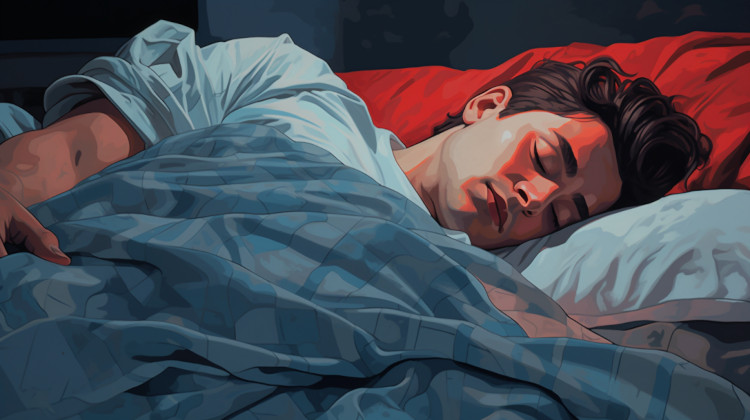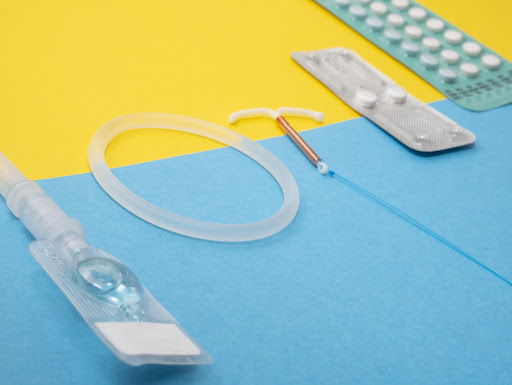Have you ever wondered why your body reacts differently in certain situations or why you suddenly feel a surge of emotions? It's all thanks to the fascinating world of hormones. Hormones are chemical messengers in our bodies that play vital roles in regulating various physiological processes. Whether it's growth, development, reproduction, metabolism, or even mood, hormones significantly impact our overall well-being.
Recent studies have raised questions about the potential impact of cannabis on hormonal balance.1 Cannabis contains various compounds, notably tetrahydrocannabinol (THC) and cannabidiol (CBD), which interact with the body's endocannabinoid system. This system also regulates multiple physiological functions, including mood, appetite, pain sensation, and immune response.
Given the complex interplay between the endocannabinoid system and other systems in the body, it's fair to ask: What are the potential interactions between weed and hormones? Can the use of cannabis disrupt the delicate equilibrium of hormones and potentially lead to hormonal imbalances?
What are Hormones?
Hormones are the chemical messengers produced by specialized glands in the body, collectively known as the endocrine system. These glands, including the pituitary gland, thyroid, adrenal glands, pancreas, and reproductive organs, secrete hormones into the bloodstream, where they travel to target organs or tissues to regulate various bodily functions.
Hormones play a big role in maintaining homeostasis, which refers to the balance and stability of the internal bodily environment. They act as signaling molecules, coordinating and regulating the activities of different organs and systems, ensuring they function harmoniously.
Here are some of the significant functions and roles of hormones in the body:
- Growth and Development: Hormones, such as human growth hormone (HGH), insulin-like growth factor 1 (IGF-1), and sex hormones like estrogen and testosterone, play vital roles in regulating growth and development during childhood and adolescence.2 They promote bone and muscle growth, regulate sexual maturation, and influence body composition.
- Metabolism: Hormones like insulin, produced by the pancreas, help regulate glucose levels in the blood, allowing cells to absorb and utilize glucose for energy. Thyroid hormones, like thyroxine (T4) and triiodothyronine (T3), control the body's metabolic rate and energy production.
- Reproduction and Sexual Function: Sex hormones, including estrogen and progesterone in females and testosterone in males, are responsible for reproductive development, menstrual cycles, fertility, and sexual characteristics. They influence the growth and functioning of the reproductive organs and contribute to sexual desire and libido.
- Mood and Emotions: Hormones like serotonin, dopamine, and norepinephrine, often called "feel-good" neurotransmitters, are crucial in regulating mood, emotions, and overall mental well-being. Imbalances in these neurotransmitters can contribute to mood disorders such as depression and anxiety.
- Stress Response: The adrenal glands produce hormones such as cortisol and adrenaline, which are involved in the body's response to stress. These hormones help mobilize energy, increase heart rate and blood pressure, and sharpen focus during challenging situations.
Here are some of the most significant and influential hormones:
- Insulin: Regulates blood glucose levels and facilitates glucose uptake by cells.
- Thyroid hormones (T3 and T4): Control metabolism, energy production, and regulate growth and development.
- Estrogen: Plays a crucial role in female reproductive health, menstrual cycles, and bone density.
- Testosterone: Important for male reproductive health, sexual characteristics, and muscle development.
- Growth Hormone (HGH): Promotes growth and development, particularly during childhood and adolescence.
- Cortisol: Involved in the stress response and helps regulate metabolism and immune function.
- Serotonin: Regulates mood, appetite, and sleep and is often associated with feelings of well-being.
- Dopamine: Plays a role in motivation, reward, and pleasure.
- Progesterone: Regulates the menstrual cycle, supports pregnancy, and prepares the body for childbirth.
How Does Cannabis Affect Hormones?

The potential effects of cannabis on hormonal balance have been a subject of interest and scientific investigation. While research in this area is ongoing and findings can be complex, there are key aspects regarding the influence of cannabis on hormone regulation to explore.
The Hypothalamus-Pituitary-Adrenal (HPA) Axis regulates stress responses, metabolism, immune function, and mood.3 In short, the HPA axis is "a complex system of neuroendocrine [hormone-related] pathways and feedback loops that function to maintain physiological homeostasis."4 In other words, these terms refer to a group of endocrine glands that often work together (in this case, the hypothalamus, the pituitary, and the adrenal glands).
Some studies suggest that chronic cannabis use may affect the functioning of the HPA axis.5 These papers have shown that cannabinoids, the active compounds in cannabis, can modulate the release of stress-related hormones, such as cortisol, from adrenal glands.6 These effects are mediated through the interaction between cannabinoids and the endocannabinoid system, which includes receptors in or near the hypothalamus. However, it is important to note that the long-term consequences of cannabis use on the HPA axis in humans remain unclear.
The Hypothalamus-Pituitary-Thyroid (HPT) axis regulates thyroid hormone production and plays a vital role in metabolism, growth, and development.7 While research on the direct effects of cannabis on the HPT axis is limited, some people report that cannabis use affects their thyroid function. However, other studies have found little to no effect of marijuana use on thyroid hormones.8
Finally, the Hypothalamus-Pituitary-Gonadal (HPG) axis is responsible for the regulation of reproductive hormones, including estrogen and testosterone. Research exploring the effects of cannabis on the HPG axis has yielded mixed findings. Some studies have suggested that chronic cannabis use may lead to alterations in reproductive hormone levels, while others have not found significant associations.9 For example, some researchers have observed reduced testosterone levels in some studies, but the impact on estrogen levels appears to be less clear.10,11
Does Weed Cause Hormonal Imbalance?
The answer to whether weed causes hormonal imbalance is not a simple yes or no; it depends on several factors and the specific hormone in question. Research in this area has yielded varying findings, suggesting that the relationship between weed and hormonal balance is complex.
For instance, a retrospective study examining male infertility did find an association between cannabis use and hormonal imbalance.12 It reported lower estradiol levels and inhibited aromatase function among cannabis users, suggesting a potential hormone level disruption.
Not only that, but in some animal studies, the administration of cannabinoids led to slight elevations in luteinizing hormone and follicle-stimulating hormone in male monkeys.13 However, the effects on steroid hormones were essentially unchanged for both sexes. Hormone imbalances observed in these studies may contribute to impaired gonadal function and embryotoxicity (an interference with normal growth and development of a fetus) induced by cannabinoids.
While these studies provide insights into the potential effects of weed on hormones, it is crucial to consider the limitations and complexities of the research. Factors such as dosage, duration of use, method of consumption, and individual variability can significantly influence the outcomes. Additionally, research findings have not always been consistent, with some studies not finding any significant associations between cannabis use and hormonal imbalances.14
Therefore, it is essential to approach the topic cautiously and recognize that more research is needed to fully understand the relationship between weed and hormonal balance.
The Link Between Melatonin and Weed

Melatonin is a hormone produced by the pineal gland in the brain, primarily responsible for regulating the sleep-wake cycle. It is crucial in maintaining healthy sleep patterns and promoting overall well-being.
Given cannabis' reputation for making people sleepy, it's a fair question as to what effect, if any, it has on melatonin. Well, cannabis has been found to alter the sleep-wake cycle and increase melatonin production. Activation of cannabinoid type 1 (CB1) receptors in wake-promoting centers, such as the basal forebrain, can inhibit the arousal system and influence melatonin levels.15 So, this interaction between cannabis and the sleep-regulating system indicates a potential influence on melatonin production and sleep patterns.
Interestingly enough, in a case report involving a dog with compulsive disorder, the combined administration of cannabis and melatonin along with a behavioral program resulted in improved symptoms and better management of the dog compared to previous treatment with paroxetine, an SSRI typically used to treat depression and anxiety.16 While this is a single case report and further research is needed, it suggests that combining cannabis and melatonin may positively impact certain conditions by potentially modulating melatonin levels and related behaviors.
Not only that, but studies in rats have shown that, "Cannabinoids inhibit AANAT activity and attenuate melatonin biosynthesis through intracellular actions without involvement of classical cannabinoid receptor-dependent signaling cascades."17 In other words, researchers discovered that cannabinoids can slow down or stop melatonin production and can do so through intracellular actions without directly affecting cannabinoid receptors.
The Link Between Testosterone and Weed
Testosterone is a hormone primarily associated with male development and sexual characteristics. However, it is present in both males and females. Given how important testosterone is for many bodily functions, there has been significant research interest in the effects cannabis may have on this particular hormone.
Even so, studies investigating the relationship between cannabis use and testosterone levels have reported conflicting findings.18 Some have found no significant influence of cannabis on serum testosterone levels in infertile men, which suggests cannabis use may not directly affect testosterone levels in all individuals.
However, other studies have shown associations between cannabis use and testosterone levels. For instance, a study examining the impact of cannabis use on male sexual function found that cannabis users had slightly higher mean serum testosterone concentrations than non-users.19
Nevertheless, like many pieces of research, these studies have limitations. The findings may be influenced by the specific cannabis strains used, frequency and duration of use, dosage, and individual variability. Not only that, but the impact of cannabis on testosterone levels may vary among different populations and contexts.
For a comprehensive understanding of the relationship between cannabis and testosterone, further research is needed. It is also worth noting that testosterone levels alone may not be a reliable biomarker for male fertility, and other factors such as semen quality and time-to-pregnancy should be considered in determining fertility status.20
The Link Between Estrogen and Weed

Estrogen is a group of hormones primarily associated with female reproductive functions, although (like testosterone) they are also present in males. Estrogen is vital in regulating the menstrual cycle, supporting pregnancy, and maintaining overall reproductive health. Some research suggests that cannabis may impact estrogen levels and the delicate balance of the female reproductive system.21
However, it's worth noting that the: "Existing literature is primarily concentrated on the effect of cannabis use in pregnancy and breastfeeding, with little exploration of its impact on fertility and in later life. Studies are limited in number, with small sample sizes, and are hampered by methodological challenges related to confounding and other potential biases."22
Still, the endocannabinoid system (ECS) plays a crucial role in reproductive processes. So it's worth investigating whether or not the exogenous cannabinoids in marijuana have the potential to disrupt the delicate balance of the female reproductive system, which may have potential implications for reproductive health.
One study specifically examining the effects of delta-9-tetrahydrocannabinol (THC) on estrogen signaling in the human placenta did find significant alterations caused by THC.23 These results suggest that cannabis use may contribute to negative pregnancy outcomes by impacting estrogen signaling and placental hormonal function.
Nevertheless, further research is necessary to understand the complex interactions between weed and estrogen signaling in the female reproductive system, as researchers still don't fully understand the connection (if any) between weed and fertility in those trying to conceive.
The Link Between Serotonin and Weed
Serotonin is a neurotransmitter crucial in regulating various physiological functions and mood. Some research does suggest that cannabis can interact with the serotonin system, which may impact how our brain cells communicate with each other and affect things like thoughts, feelings, and behaviors.24
Cannabidiol (CBD), a non-addictive and non-intoxicating component of cannabis, has been found to modulate serotonergic transmission and interact with the serotonin 1A receptor. Clinical studies indicate that CBD may possess analgesic (pain-relieving) and anxiolytic (anxiety-reducing) effects, possibly through its interaction with the serotonin system. However, further research is needed to fully understand the extent of these effects and their clinical implications.25
Nevertheless, interactions between cannabis and serotonin can also have potential adverse effects. There have been reports of individuals experiencing symptoms similar to serotonin syndrome after using highly potent forms of cannabis.26 Serotonin syndrome is a serious condition characterized by excessive serotonin activity in the brain.
While the precise mechanisms underlying this interaction require more investigation, it highlights the need for caution, particularly for individuals taking medications that affect serotonin levels, such as selective serotonin reuptake inhibitors (SSRIs), commonly used to treat depression and anxiety. The combination of cannabis and SSRIs may have unpredictable effects on serotonin levels and necessitates careful monitoring.
The Link Between Growth Hormones and Weed

As the name suggests, growth hormones are vital in regulating the body's growth, development, and various metabolic processes. While growth hormones are particularly important during periods of growth, such as childhood and adolescence, they continue to have essential functions in adulthood as well. With that said: Does weed affect growth hormones?
Preclinical studies have indicated that THC may depress growth hormone levels while affecting other hormonal functions such as prolactin and thyroid gland activity, suggesting cannabis use may impact the normal regulation of growth hormones in the body.27
Some studies have also found that the substances in cannabis, like THC, can be found in breast milk after the use of cannabis. This may have significant side effects on the baby, potentially affecting growth and development and restricting the normal functioning of growth hormones, however, more research is needed.28
In addition, research on human placental cells suggests that THC may disrupt mitochondrial function and impair syncytialization, a critical process in pregnancy.29,30 This disruption may lead to reduced expression of essential growth hormones, such as human placental lactogen (hPL) and insulin-like growth factor 2 (IGF2), which are essential for pregnancy success and proper fetal growth.31
While researchers still need to learn more about how cannabis affects growth hormones, these studies give some interesting clues about how it might interact with the body. It's like solving a puzzle and discovering new pieces. It's important to consider how using cannabis could potentially affect essential functions.
References
- Borowska M, Czarnywojtek A, Sawicka-Gutaj N, et al. The effects of cannabinoids on the endocrine system. Endokrynol Pol. 2018;69(6):705-719. doi:10.5603/EP.a2018.0072
↩︎ - Giustina A, Mazziotti G, Canalis E. Growth Hormone, Insulin-Like Growth Factors, and the Skeleton. Endocrine Reviews. 2008;29(5):535-559. doi:https://doi.org/10.1210/er.2007-0036
↩︎ - Dunlavey CJ. Introduction to the Hypothalamic-Pituitary-Adrenal Axis: Healthy and Dysregulated Stress Responses, Developmental Stress and Neurodegeneration. J Undergrad Neurosci Educ. 2018;16(2):R59-R60. Published 2018 Jun 15.
↩︎ - Sheng JA, Bales NJ, Myers SA, et al. The Hypothalamic-Pituitary-Adrenal Axis: Development, Programming Actions of Hormones, and Maternal-Fetal Interactions. Frontiers in Behavioral Neuroscience. 2021;14(601939). doi:https://doi.org/10.3389/fnbeh.2020.601939 ↩︎
- Cservenka A, Lahanas S, Dotson-Bossert J. Marijuana Use and Hypothalamic-Pituitary-Adrenal Axis Functioning in Humans. Frontiers in Psychiatry. 2018;9. doi:https://doi.org/10.3389/fpsyt.2018.00472
↩︎ - Ranganathan M, Braley G, Pittman B, et al. The effects of cannabinoids on serum cortisol and prolactin in humans. Psychopharmacology (Berl). 2009;203(4):737-744. doi:10.1007/s00213-008-1422-2
↩︎ - Ortiga-Carvalho TM, Chiamolera MI, Pazos-Moura CC, Wondisford FE. Hypothalamus-Pituitary-Thyroid Axis. Comprehensive Physiology. 2016;6(3):1387-1428. doi:https://doi.org/10.1002/cphy.c150027
↩︎ - Muzaffar AF, Ullah S, Subhan F, et al. Clinical Investigation on the Impact of Cannabis Abuse on Thyroid Hormones and Associated Psychiatric Manifestations in the Male Population. Frontiers in Psychiatry. 2021;12. doi:https://doi.org/10.3389/fpsyt.2021.730388
↩︎ - Ryan KS, Bash JC, Hanna CB, Hedges JC, Lo JO. Effects of marijuana on reproductive health. Current Opinion in Endocrinology, Diabetes & Obesity. 2021;Publish Ahead of Print. doi:https://doi.org/10.1097/med.0000000000000686
↩︎ - Thistle JE, Graubard BI, Braunlin M, et al. Marijuana use and serum testosterone concentrations among U.S. males. Andrology. 2017;5(4):732-738. doi:https://doi.org/10.1111/andr.12358
↩︎ - Sauer MA, Rifka SM, Hawks RL, Cutler GB, Loriaux DL. Marijuana: interaction with the estrogen receptor. The Journal of Pharmacology and Experimental Therapeutics. 1983;224(2):404-407. Accessed July 25, 2023. https://pubmed.ncbi.nlm.nih.gov/6296360/
↩︎ - Teixeira TA, Iori I, Andrade G, et al. Marijuana Is Associated With a Hormonal Imbalance Among Several Habits Related to Male Infertility: A Retrospective Study. Frontiers in Reproductive Health. 2022;4. doi:https://doi.org/10.3389/frph.2022.820451 ↩︎
- Rosenkrantz H, Esber HJ. Cannabinoid‐induced hormone changes in monkeys and rats. Journal of Toxicology and Environmental Health. 1980;6(2):297-313. doi:https://doi.org/10.1080/15287398009529853
↩︎ - Corsi DJ, Murphy MSQ, Cook J. The Effects of Cannabis on Female Reproductive Health Across the Life Course. Cannabis and Cannabinoid Research. Published online December 28, 2020. doi:https://doi.org/10.1089/can.2020.0065
↩︎ - Bowles N, Herzig M, Shea S. Recent legalization of cannabis use: effects on sleep, health, and workplace safety. Nature and Science of Sleep. 2017;Volume 9:249-251. doi:https://doi.org/10.2147/nss.s152231 ↩︎
- Sacchettino L, Gatta C, Maruccio L, et al. Combining cannabis and melatonin treatment with a rehabilitation program improved symptoms in a dog with compulsive disorder: A case report. Research in Veterinary Science. 2023;160:26-29. doi:https://doi.org/10.1016/j.rvsc.2023.05.007
↩︎ - 235.Koch M, Ferreirós N, Geisslinger G, Dehghani F, Korf HW. Rhythmic control of endocannabinoids in the rat pineal gland. Chronobiology International. 2015;32(6):869-874. doi:https://doi.org/10.3109/07420528.2015.1041596
↩︎ - Teixeira TA, Iori I, Andrade G, et al. Marijuana Is Associated With a Hormonal Imbalance Among Several Habits Related to Male Infertility: A Retrospective Study. Frontiers in Reproductive Health. 2022;4. doi:https://doi.org/10.3389/frph.2022.820451
↩︎ - Shiff B, Blankstein U, Hussaen J, et al. The impact of cannabis use on male sexual function: A 10-year, single-center experience. Canadian Urological Association Journal. 2021;15(12). doi:https://doi.org/10.5489/cuaj.7185 ↩︎
- Bieniek J, Drabovich A, Lo K. Seminal biomarkers for the evaluation of male infertility. Asian Journal of Andrology. 2016;18(3):426. doi:https://doi.org/10.4103/1008-682x.175781 ↩︎
- Brents LK. Marijuana, the Endocannabinoid System and the Female Reproductive System. The Yale Journal of Biology and Medicine. 2016;89(2):175-191. https://www.ncbi.nlm.nih.gov/pmc/articles/PMC4918871/
↩︎ - Corsi DJ, Murphy MSQ, Cook J. The Effects of Cannabis on Female Reproductive Health Across the Life Course. Cannabis and Cannabinoid Research. Published online December 28, 2020. doi:https://doi.org/10.1089/can.2020.0065
↩︎ - Maia J, Almada M, Midão L, et al. The Cannabinoid Delta-9-tetrahydrocannabinol Disrupts Estrogen Signaling in Human Placenta. Toxicological Sciences: An Official Journal of the Society of Toxicology. 2020;177(2):420-430. doi:https://doi.org/10.1093/toxsci/kfaa110
↩︎ - Martin EL, Strickland JC, Schlienz NJ, et al. Antidepressant and Anxiolytic Effects of Medicinal Cannabis Use in an Observational Trial. Frontiers in Psychiatry. 2021;12. doi:https://doi.org/10.3389/fpsyt.2021.729800
↩︎ - De Gregorio D, McLaughlin RJ, Posa L, et al. Cannabidiol modulates serotonergic transmission and reverses both allodynia and anxiety-like behavior in a model of neuropathic pain. PAIN. 2019;160(1):136-150. doi:https://doi.org/10.1097/j.pain.0000000000001386 ↩︎
- Baltz J, Le L. Serotonin Syndrome versus Cannabis Toxicity in the Emergency Department. Clinical Practice and Cases in Emergency Medicine. 2020;4(2):171-173. doi:https://doi.org/10.5811/cpcem.2020.1.45410
↩︎ - Harclerode J. Endocrine effects of marijuana in the male: preclinical studies. NIDA research monograph. 1984;44:46-64. https://pubmed.ncbi.nlm.nih.gov/6090909/
↩︎ - Djulus J, Moretti M, Koren G. Marijuana use and breastfeeding. Canadian Family Physician. 2005;51(3):349-350. https://www.ncbi.nlm.nih.gov/pmc/articles/PMC1472960/
↩︎ - Walker O, Rehginald Ragos, Harmeet Gurm, Lapierre M, May L, Raha S. Delta‐9‐tetrahydrocannabinol disrupts mitochondrial function and attenuates syncytialization in human placental BeWo cells. 2020;8(13). doi:https://doi.org/10.14814/phy2.14476 ↩︎
- Wang R, Dang YL, Zheng R, et al. Live Cell Imaging of In Vitro Human Trophoblast Syncytialization1. Biology of Reproduction. 2014;90(6). doi:https://doi.org/10.1095/biolreprod.113.114892 ↩︎
- Bergman D, Halje M, Nordin M, Engström W. Insulin-Like Growth Factor 2 in Development and Disease: A Mini-Review. Gerontology. 2013;59(3):240-249. doi:https://doi.org/10.1159/000343995 ↩︎
The information in this article and any included images or charts are for educational purposes only. This information is neither a substitute for, nor does it replace, professional legal advice or medical advice, diagnosis, or treatment. If you have any concerns or questions about laws, regulations, or your health, you should always consult with an attorney, physician or other licensed professional.




